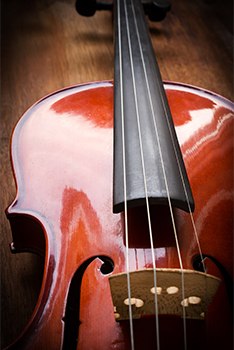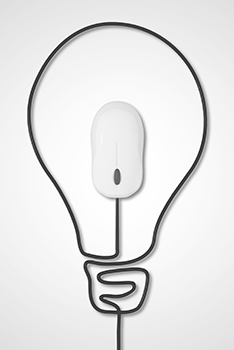Justices Should Model the High Standards Expected of All Wisconsin Attorneys
I am very disappointed with the current membership of the Wisconsin Supreme Court. My son was one of the Marquette Law School graduates admitted to the State Bar on May 18, an event referenced in several news articles as being the first time Patience Roggensack served as chief justice. Most striking was the fact that only four justices were present; all members of the conservative group. The three more liberal members were conspicuously absent.
We Want to Hear from You! Submit a Letter to the Editor
Wisconsin Lawyer provides a forum for members to express ideas, concerns, and opinions on law-related subjects. Send comments to wislawyer@wisbar.org (include “Letters” in the subject line), or mail to Wisconsin Lawyer “Letters,” P.O. Box 7158, Madison, WI 53707-7158. Limit to 500 words. Writing guidelines available.
What an unfortunate way for these law grads to remember their formal admission to the State Bar. I believe all seven justices were present at my admission in September 1980. I felt like I was being welcomed to the State Bar by the Wisconsin Supreme Court as an institution, not by a particular faction.
Attorneys are expected to show respect for the court and civility toward our colleagues. I would expect nothing less from the seven attorneys holding the highest rank in this state’s legal community. Instead, their inability to play nicely in the same sandbox reflects behavior beneath standards we’d expect of any professional. What happened to the ability to disagree with one another on legal issues while still showing respect for the high offices they each hold? Perhaps the current members of the court could find an example on the U.S. Supreme Court, where Justice Scalia and Justice Ginsburg have shown a mutual respect for each other despite being at opposite ends of the political spectrum.
I don’t hold one or the other faction responsible for the slight to these Marquette Law School grads or for the declining reputation of this court vis-à-vis the other 49 state supreme courts. The seven are members of an exclusive club and only they, as a group, have the power to make things right. The practice of law (even life, in general) requires us to interact with lots of people with whom we don’t see eye-to-eye. I am disappointed that such disagreements are displayed in this fashion by those who are the ultimate guardians of law, equity, and justice in Wisconsin.
For starters, it wouldn’t be inappropriate for the entire court to apologize to the new Marquette grads and the legal community, in general. Their lack of respect toward the court’s admission process and lack of civility toward colleagues sends absolutely the wrong message to lawyers; particularly those just entering the profession. All seven might also want to reexamine their roles and legacy on the Wisconsin Supreme Court. Do they wish to model the high standards expected of all Wisconsin attorneys? Or will they lead society’s march toward the further erosion of respect and civility? As the court of last resort in Wisconsin, the decision is theirs.
Atty. Richard J. Knight
Pfefferle Companies Inc., Appleton
Suppressing Competition with UPL Laws Does Not Work
I commend the State Bar, speaking through Executive Director Brown, for recognizing that the unauthorized practice of law (UPL) laws are not working, and for taking the more positive approach of competing fairly and showing the value of its members. (See “A New Maginot Line?,” Wisconsin Lawyer, May 2015.)
Are You an Artist? Represent One? Special Issue on Lawyers & the Arts Coming Next Spring
 Are you an artist as well as lawyer? Do you represent writers, musicians, or other artists with intellectual property, contracts, and other business issues? Galleries? Museums? Performers and their venues? The Wisconsin Lawyer editorial board is working on a special focus issue on Lawyers & the Arts next spring, and we’d like to hear from you.
Are you an artist as well as lawyer? Do you represent writers, musicians, or other artists with intellectual property, contracts, and other business issues? Galleries? Museums? Performers and their venues? The Wisconsin Lawyer editorial board is working on a special focus issue on Lawyers & the Arts next spring, and we’d like to hear from you.
If you’re interested in being part of this issue, tell us how you’re involved in the arts and entertainment industry and what readers will learn from your experiences. Please contact the editorial staff at wislawmag@wisbar.org. Thanks in advance for your input.
Joyce R. Hastings, Editor
Karlé A. Lester, Managing editor
I think this is a more beneficial approach – for the public and the legal profession. I believe the suppression of competition through prohibition by the UPL laws has been no more successful than the prohibition of alcohol in the 1920s-30s. I believe legislated controls like these, and like price controls, will not work permanently. The public eventually finds a way to get what it wants through bootlegged products or services – or by creating their own, as is presently being done in the legal field by pro se parties and other nonattorneys.
After participating in the UPL hearings several years ago, I cannot overemphasize the importance of this changed approach by the State Bar – it is nothing short of revolutionary. This is already helping the legal profession by the innovations Mr. Brown cited, with the prospect of many more. As I stated during the UPL hearings, there was a law firm that had only one lawyer, who supervised 11 paralegals who did almost all the drafting and other legal work, under the lawyer’s supervision. This is a paradigm of efficiency and may very well become a model of the future, along with other models such as the virtual office, whereby attorneys work out of their home office with little or no overhead.
These models will, by design, be more efficient and affordable for the public and should increase overall legal business due to increased affordability at the lower prices. It should also increase the incomes of lawyers who use these innovations due to their increased productivity. Others, who are looking for their first or a new job, may have to innovate to remain fully employed as a lawyer, or move into a law-related or even nonlegal career.
What the legal profession is going through now is similar to what the engineering profession went through in the 1950s-60s when the federal government greatly reduced its purchases of weapons systems. Many highly trained aerospace and aeronautical engineers found themselves out of work. They were often considered overqualified for other, more mundane, jobs. Many engineers had serious employment problems for many years, but most recovered by making adjustments, including changing occupations and working for less money.
I was one of those engineers. After leaving the industry and teaching engineering for many years, I decided to diversify my professional skills and obtained a degree-equivalency in accounting and, years later, a paralegal certificate, which I have used for my own legal work and for giving free legal help to people who have been cheated or who cannot find or afford a good attorney. I presently have an almost 10-year-old case against a municipality, which is on its second appeal.
I have been successful in most of my cases, but have also lost cases due to corruption on both sides of the bench. I believe corruption is the biggest problem today in the Wisconsin legal profession – even exceeding that of employment. This also affects Bar members since many are now in a weakened employment position, which makes it difficult for many to maintain their ethics by standing up for honesty and justice when they may be under intense pressure to win their cases at all costs.
 Mr. Owen S. Durigan
Mr. Owen S. Durigan
Brookfield
Who’s Blogging What?
The State Bar of Wisconsin has identified 68 Wisconsin law blogs as of April 20, 2015. Since the State Bar ran a list of law blogs in the March 4 InsideTrack article, “49 Wisconsin Law Blogs: Attorneys Writing Their Way to New Business,” readers alerted us to 19 additional blogs. Read the list. Is your law blog missing? Send me an email.
Atty. Joe Forward
State Bar of Wisconsin
